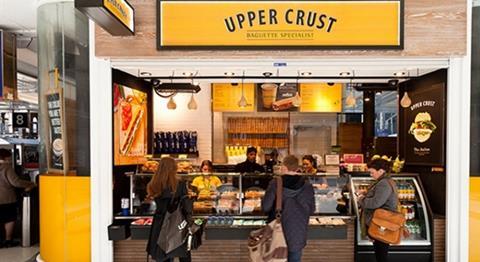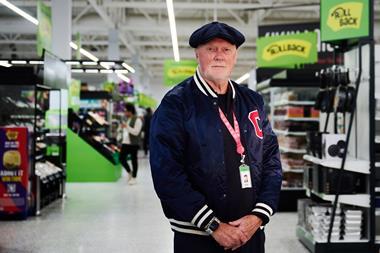
Upper Crust owner SSP Group has launched a £100m share buyback programme as it looks to respond to attempts by an activist investor to sell the business to private equity.
Irenic Capital Management, an activist hedge fund that owns about 3% of SSP, has shared materials with private equity groups encouraging them to launch a takeover bid for the food-to-go operator, the Financial Times reported this week.
SSP’s share price is down 8% since the start of the year, largely due to weaker-than-expected sales performance driven by a slowdown in global travel.
The group operates stores in railway stations and airports, including Upper Crust, Caffè Ritazza and M&S Simply Food franchises.
The £100m share buyback programme announced on Wednesday is an attempt to boost its share price and has been enabled by “strong cash generation in the second half” and confidence in next year’s outlook, said CEO Patrick Coveney.
SSP’s revenue rose 8% to £3.7bn in the year to 30 September, in line with forecasts. Its operating profit rose 11% to £230m due to an increase in margin.
“While our strategy for enhanced financial returns is starting to deliver, we remain focused on strengthening performance across the group,” said Coveney.
“While we have made good progress with many of the initiatives that we have underway, more still needs to be done.”
Irenic has reportedly been pushing the company to boost its profit margin after taking a hit through the pandemic. SSP said its operating margin rose to 6.2% last year.
In a pitch deck to potential buyers seen by the FT, Irenic highlights SSP’s predictable revenues, its capacity to grow in US airports, and ability to generate capital through the sale of non-core assets like its Indian joint venture.
SSP could be valued at a 50% premium to its market value in a potential deal, Irenic said.
Revenue in the final quarter of the year was up 4%, with growth in Asia, North America, and the UK offset by lower sales in Continental Europe.
“We have delivered a resilient Q4 performance against an unsettled macro-economic and softer demand environment in some of our key travel markets,” Coveney added.



















1 Readers' comment